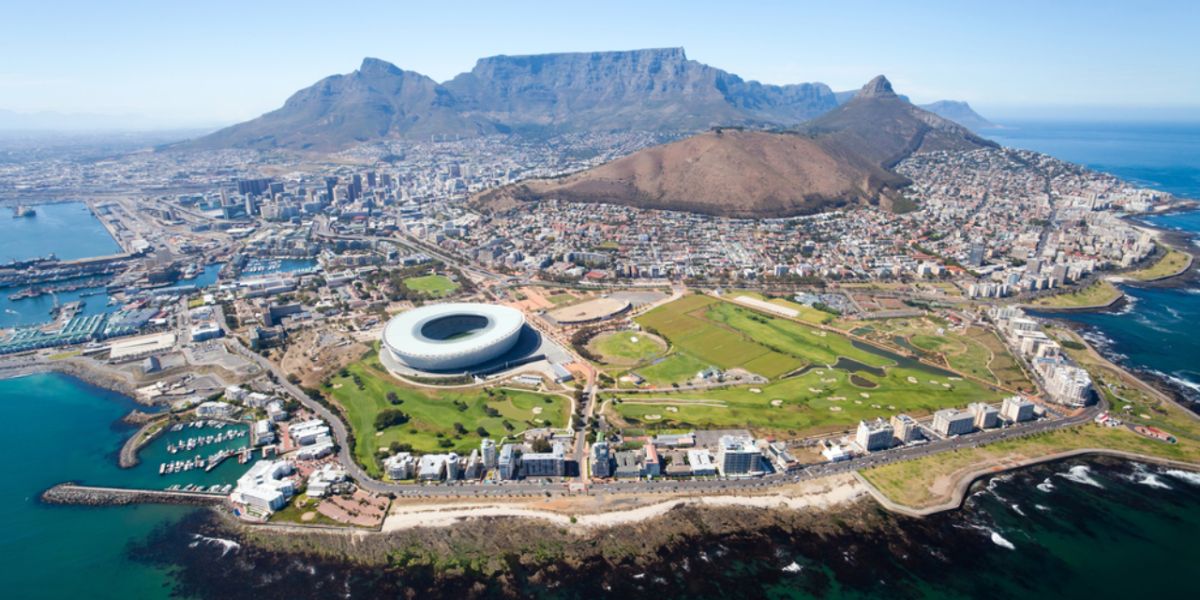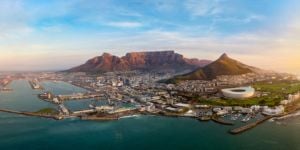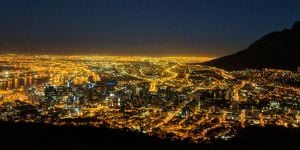
Knowing the history, societal habits and customs of a country or city before moving there is one of the keys to quick and successful integration - one that will help you better understand your new environment and settle in more easily. Here is what you need to know about Cape Town.
A Rainbow Nation
You might hear the phrase "Rainbow Nation", used to describe South Africa – a term coined by Archbishop and Nobel Peace Prize winner, Desmond Tutu. The term has been much criticised, however, due to its implication that the country is made up of a metaphoric cohabitation of "colours" and different communities. Rather than their fusion or integration, a Rainbow Nation implies lives lived in parallel, more than a reciprocal cultural exchange.
Twenty-five years after the end of the apartheid regime - which for many had raised hopes of reunification in 1994 – the separation of communities, unfortunately, remains more relevant than ever. Skin colour remains a ubiquitous subject and a critical differentiating reality in South Africa. The majority of foreigners who settle in the city are shocked to hear references to whites (English or Afrikaners), blacks (Xhosas, Zulu ...) and coloured (mixed race) communities, and to learn that each of these "colours" implies certain economic, social and cultural stereotypes.
Languages in Cape Town
The country has 11 official and recognised languages, and even the country's anthem is divided into five couplets, each sung in one of the five majority languages: Xhosa, Zulu, Sesotho, Afrikaans and English. Each community has its own separate particularities and, though this may seem alien, knowing about the existence of such cultural differences will help you come to an understanding of South Africa, and Cape Town, more easily.
The people in Cape Town
The "whites" represent a little less than 10% of the South African population according to the last census of 2010. This section of society is composed of Afrikaners, descendants of the Dutch who arrived in the middle of the 17th century in Cape Town, and English-speaking South Africans, descendants of the British who took over by force at the very beginning of the 19th century. Due to the violent conflict in their histories, these two communities, despite their shared European origins, sometimes have trouble getting along and remain relatively distant from one another.
Afrikaners can be very well off landowners, having huge farms in the Karoo, or may be middle class. They have a deep attachment to their language of Afrikaans and are quite conservative in their traditions. Many are practising Protestants, and generally, have strong moral values and opinions.
Social life in Cape Town
It can be difficult to access their circle of friends, which is often forged at school or during their studies. Inviting Afrikaners to a "braai" - the famous weekend barbecues so dear to Capetonians and for which there is a holiday, September 24 - is just one way to break the ice. Don't expect miracles straight away - you may want to persevere by enrolling your children in rugby lessons, a sport that occupies an essential place in South African schools! Over time, you may end up deepening your relationships, but the best way to connect with Afrikaners is to learn Afrikaans or to take part in some of their favourite weekend activities: camping or a game drive (the local name for safari) in the Bush. Kruger Park and the innumerable reserves of the country are a constantly renewed source of outstanding animal adventures, and camping is a great way to meet and make connections.
Some Afrikaners are also descendants of the Huguenots; French Protestants who fled in response to the Edict of Nantes at the end of the 18th century. You may, therefore, come across typical names such as Du Toit, De Villiers, Joubert, Malan, Duplessis, Le Roux, Marrais, to name just a few!
British South Africans are often extremely wealthy, being descended from large families who made their fortune in the gold and diamond mines at the end of the 19th century. Many have remained very British in their habits and cultural traditions, and return regularly to Great Britain, where many still have a family. The notions of clubs and private circles predominate in this group and are very important in their social lives. To enter these circles - especially if you don't have the means to follow their lifestyle - the simplest way to make connections is via the prestigious schools attended by your children, or via mutual acquaintances.
The "Coloured" community represents a little less than 9% of the population. You should be aware that contrary to what you may assume, these are not people from mixed marriages between blacks and whites, but the descendants of original local tribes decimated by the violence of the Dutch who settled in the Cape region in the 17th century. This community also includes the descendants of slaves "imported" by force at around the same time from South-East Asia, for the construction and development of the city. The mother tongue of this community is usually Afrikaans, with Muslim being the main religion. This remains a troubled community. Though they share their language with the Afrikaners, history has nevertheless placed between the two groups an impassable hierarchical barrier.
At the end of apartheid, social assistance and economic measures were chiefly set up for black communities. The coloured communities are thus navigating between two waters, in search of their lost identity. While there are many entrepreneurs in the manual and technical trades, nurses, and low-level officials, many are in search of work. Drug trafficking networks and very violent crimes are unfortunately common in the coloured communities, who live mainly on the outskirts of the city or in townships of their own. Outside professional interactions - with your plumber or electrician, for example, who will most likely come from this community - you may find it difficult to build connections.
That being said, why not start with their gastronomic customs: South Africa owes many of its only culinary specialities to the coloured communities - improperly called "Cap Malaises" - such as Bobotie and spicy curries from Asia. Many cooking classes and festivals are organised in Cape Town and especially in Bo-Kaap - where you can try to make connections.
Finally, the "Blacks" represent 80% of the country's population, and their social and economic situation remains extremely troubled despite the twenty-five years that have passed since the end of apartheid. Things are moving faster in Johannesburg, where a black middle class has been emerging for some years. However, in the rest of the country and in Cape Town, the situation is much more difficult. It should be noted that this group is very heterogeneous, with each tribe (Xhosa, Zulu, etc.) having its own traditions, especially in terms of weddings, dowries, funerals, rites of passage to adulthood, etc. The Zulus in the east of the country (KwaZulu Natal), are very loyal to their origins and claim a form of tribal independence that is a challenge when it comes to political power.
Despite these differences, be aware that in Cape Town, the majority of contact you will have with members of this community will in all probability be hierarchical - they will be your gardeners, housekeepers, waiters in restaurants ... - or on humanitarian grounds. You may undertake some work in the townships, for example, but aside from these interactions, the social gap is often too wide for you to make significant connections. Most of the coloured communities live in townships, while it is more likely you will be living in the central, privileged areas of the city. Your children will not attend the same schools, while their limited financial means do not allow them to access the activities available to other communities.
If you are a student or enjoy the city's nightclubs, you may have the opportunity to interact with the younger generations of the rising black middle class, however, in day to day life, your exchanges will probably remain limited. It is for this reason that, faced with so much social and cultural separation, foreigners often end up remaining in a specific sphere during their time in Cape Town.
Tips
We cannot recommend highly enough keeping an open mind and experimenting with activities to get you out of your comfort zone. To end on a happier note, here is some basic vocabulary that may be useful!
The Braai, as explained above, is the equivalent of a barbecue. The Fynbos is the dense shrubland of Cape Town, which sometimes catches flame during the dry season, causing dramatic fires. Game meat: this refers to the animals native to the Bush: antelopes (Kudu, impala, springbok, etc.), warthogs, ostriches, etc. Bakkies are the equivalent of pick-up trucks: huge cars open at the rear that allow the transport of bulky items, which are very common.
Lekker, means good or delicious in Afrikaans while Howzit is a contraction of "How is it", which is also used as a question when you meet someone - especially of the younger generation. NowNow (now now) is a bit like the Mexican Ahorita: which may give the impression that the person will arrive right away or the service be rendered immediately. In fact, you may be waiting a while!
Useful links:
We do our best to provide accurate and up to date information. However, if you have noticed any inaccuracies in this article, please let us know in the comments section below.








